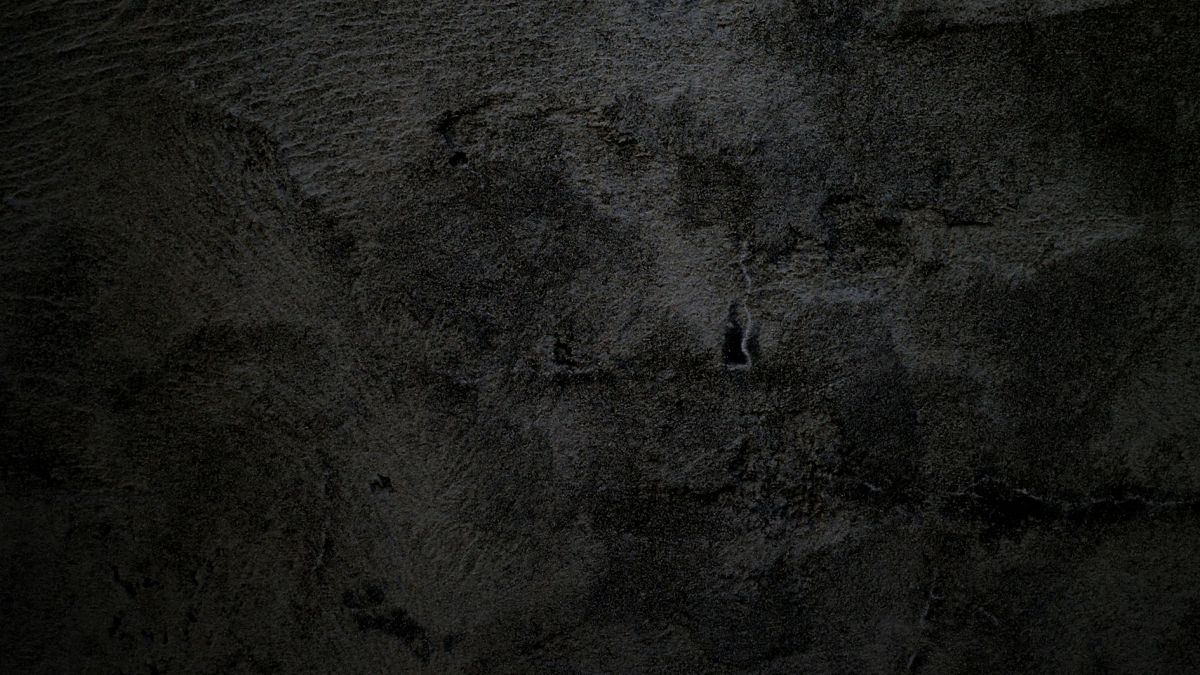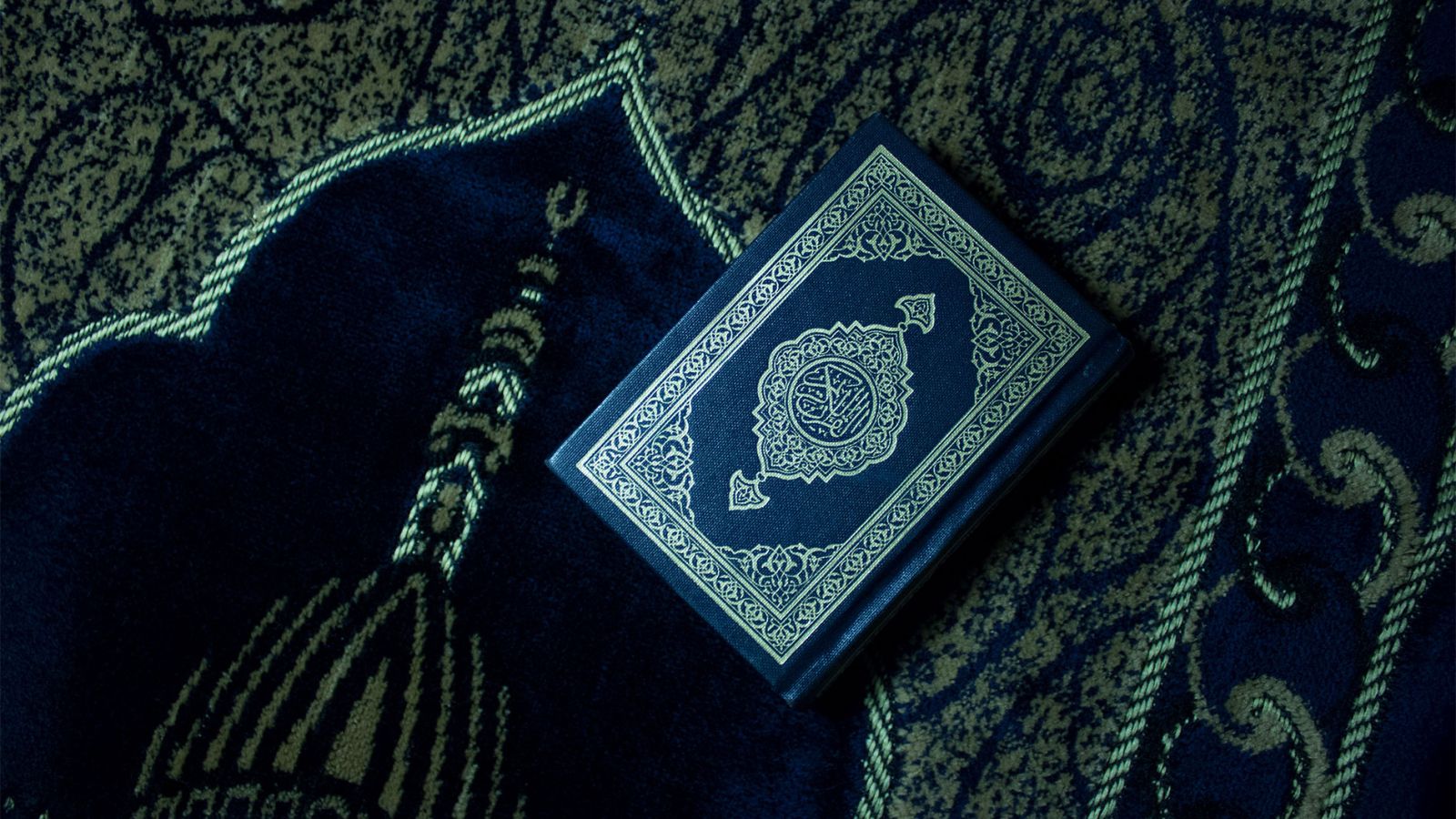An Introduction to Shirk and Its Divisions


As for Shirk in desires and intentions, then it is a sea which has not shore, very few are saved from drowning in it.
Why Study Such a Topic?
Shaykh Ṣāliḥ Ibn Sa’d al-Suḥaymī says:
‘‘Shirk (associating others with Allāh) is the greatest sin by which Allāh the Mighty and Majestic is disobeyed, and its danger is severe, and it is more hidden than the crawling of an ant. So due to that, it becomes stipulated upon every Muslim to have knowledge of Shirk until he becomes safe from it, to be upon a clear path concerning its affair, and to fortify himself from falling into it. So there are many reasons for us to study such a topic, we shall summarize them as follows:
1. The Messenger (ﷺ), who did not speak from his own desires, informed that Shirk shall be found in this Ummah, and that the worshipping of idols and the following of the ways (sunan) of the early polytheists (mushrikīn) will be found in it. Indeed many aḥādīth have come concerning that, we mention from them his (ﷺ) statement: ‘‘A day and a night will not come, except that al-Lāt and al-’Uzzā 1 will be worshipped.’’2 And the Prophet (ﷺ) said: ‘‘The Hour will not be established until tribes from my Ummah attach themselves to the polytheists, and until tribes from my Ummah worship idols.’’3 And he (ﷺ) said: ‘‘You will surely follow the ways (sunan) of those who came before you, hand span by hand span, arm span by arm span, to the extent that if they were to enter a lizard’s hole, you would enter it with them.’’4 Indeed what the Messenger of Allāh (ﷺ) spoke about comes true as we see in this age of ours the deviation of some of the Muslims from their true Religion, and their accompaniment of the people of the graves and tombs, and their clinging to them and sacrificing to them in exclusion to Allāh.
2. Verily the Muslim must seek to know the evil so as to be warned from it and to stay far from it, because if he does not know it, he might fall into it unknowingly. This is proven in the statement of Hudhayfah (raḍī Allāhu ʿanhu): ‘‘The people used to ask the Messenger of Allāh (ﷺ) about the good, and I used to ask the Messenger of Allāh about the evil out of fear that I might fall into it.’’5
3. The present state and condition which has reached many of Muslims today has come to a point where you will not find a country from the Islamic countries, except that in it there is a large audience, and sanctified graves, and oaths are taken by them, and sacrifices are made for them, and aid is sought from the people in them. And candles are lighted and festivals are celebrated, and the people in the graves are asked to fulfill needs, and to extreme distress and calamities, and it is thought that such servile flattery will bring them closer to Allāh. So here, every intelligent person must ask: What is the difference between the one who seeks aid from the statues and idols and calls upon them besides Allāh and says ‘We do not worship them, except that they should bring us closer to Allāh.’; and the one who seeks aid from the dead person in his grave, and calls upon him and hopes in him to bring about good and remove harm? The answer is that both of these things are created, so it is not permissible to join them with Allāh, and they do not even have control over their own selves. So they cannot have control over others, and what is more correct than the statement ‘The one who does not possess something, cannot give it.’ So due to these reasons and others, we must have knowledge of Shirk, and unveil its realities, and clarify its danger.’’6
A Comprehensive Definition
Shaykh Ṣāliḥ Ibn Fawzān al-Fawzān says:
‘‘Shirk is to designate an associate/partner (sharīk) with Allāh in His Rubūbiyyah (Lordship), or His Ulūhiyyah (Divinity). In most cases, the association (ishrāk) is in the ʿulūhiyyah, by calling upon someone along with Allāh, or designating for other than Allāh something from the various types of worship such as: sacrifice, taking oaths, and fear, and hope, and love. Shirkis the greatest of sins and that is due to the following matters:
1. It is resembling the creation with the Creator in characteristics of ʿulūhiyyah. So whoever associates someone with Allāh, then he indeed resembles him to Him, and this is the greatest injustice, as Allāh the Exalted said:
‘‘Verily Shirk is a great injustice.’’
[Sūrah Luqmān 31:13]
And injustice (ẓulm) is to put something out of its proper place. So whoever worships other than Allāh, then indeed he puts worship out of its proper place, and he directs it to one who does not deserve it, and that is the greatest injustice.
2. Allāh informed that He does not forgive the one who does not repent from Shirk.
‘‘Verily Allāh does not forgive that Shirk be made with Him, but He forgives whatever is below that to whomever He wishes.’’
[Sūrah-Nisāʾ 4:48]
3. Allāh has informed that He has made Paradise unlawful upon the one who commits Shirk and that his dwelling place will be in the fire of Hell, Allāh the Exalted said:
‘‘Verily whosoever associates partners with Allāh, then indeed Allāh has made Paradise unlawful for him, and his station is the Fire. And the transgressors will not have any helpers.’’
[Sūrah al-Māʾidah 5:72]
4. Shirk nullifies all good deeds, as Allāh the Exalted said:
‘‘And if they associate others with Allāh, whatever they have done is nullified.’’
[Sūrah-Anʿām 6:88]
And Allāh the Exalted said:
‘‘And it was already revealed to you and to those before you, that if you should associate anything with Allāh, your work would surely become worthless, and you would surely be amongst the losers.’’
[Sūrah al-Zumar 39:65]
5. The blood and wealth of the mushrik (one who commits Shirk) is lawful, as Allāh the Exalted says:
‘‘So kill the polytheists wherever you find them and capture them and besiege them and sit and wait for them at every place of ambush.’’
[Sūrah al-Tawbah 9:5]
And the Prophet (ﷺ) said: ‘‘I have been ordered to fight the people until they say: ‘There is none worthy of worship besides Allāh.’ So if they say it, their blood and wealth is protected from me, except with due right.’’7
6. Shirk is a deficiency and a problem that Allāh has negated from Himself. So whoever associated others with Allāh, then indeed he has affirmed for Allāh what He negated from Himself. And this is the goal of muhādah (turning away) from Allāh the Exalted, and the goal of mu’ānidah (denial) and mushāqah (deviation) with Allāh.’’8
The Greatest Injustice
Imām Ibn al-Qayyim al-Jawziyyah (d.751H) – raḥimahullāh- said:
‘‘Allāh the Exalted informed that the purpose and affair of creation was to know His Names and to worship Him alone, without associates so that the people could become trustworthy (qist), and that is the justice (’adl) by which the heavens and the earth are established, as Allāh the Exalted said:
‘‘We have already sent our messengers with clear evidences and sent down with them the Book and the balance that the people may maintain their affairs in justice.’’
[Sūrah al-Ḥadīd, 57:25]
So Allāh the Glorified informed that he sent His messengers and revealed His books to establish the people upon fairness (qist) and that is justice (’adl). And from the greatest fairness is Tawḥīd, and it is the head of justice, and its maintainer and Shirk is injustice, as Allāh the Exalted said:
‘‘Verily Shirk is a great injustice.’’
[Sūrah Luqmān, 31:13]
So Shirk is the greatest injustice and Tawḥīd is the best form of justice. So what can be a greater denial than this meaning, so it is the greatest of major sins; to the extent that it is said when Shirk itself negates something, it becomes the greatest of major sins absolutely. And Allāh has prohibited Paradise upon everyone who commits Shirk, and He has made his blood, wealth, and family permissible for the people of Tawḥīd, and that they may take them as slaves for themselves since they abandon His ʿubūdiyyah (worship). Allāh the Exalted has refused to accept any actions from the mushrik (one who commits Shirk), nor is there any intercession for him, neither is his final supplication answered, nor is it accepted due to his hope. Because the mushrik is the most ignorant person concerning Allāh, since he makes something from His creation one to be called upon. And that is the utmost limit of ignorance concerning Him, as is the utmost limit of injustice to Him. And if the mushrik only knew the reality, he would not commit transgression upon his Lord, and the transgression is only upon himself.’’9
Major Shirk
Shaykh Ṣāliḥ al-Suḥaymī says:
‘‘Major Shirk (Shirk al-Akbar) is to make something from the various types of worship for other than Allāh, like sacrificing for other than Allāh, or taking an oath by other than Allāh, or calling upon other than Allāh, or seeking aid from other than Allāh; like those who seek aid from statues and idols and awliyā (close allies of Allāh), and the righteous; upon the basis that this will bring them closer to Allāh. The ruling upon this type of Shirk is that it is disbelief (kufr) that ejects one from the Religion. Allāh does not accept anything from the one who commits Shirk and his dwelling place is the Fire if he dies upon that, as the Prophet (ﷺ) said: ‘‘Whoever dies whilst calling upon other than Allāh enters the Fire.’’10 So verily Shirk is the absolute worst sin, and Allāh will never forgive those who die upon it, as Allāh the Exalted said:
‘‘Verily Allāh does not forgive that Shirk be made with Him, but He forgives whatever is below that for whoever He wishes. And whosoever associates others with Allāh, then he has indeed strayed far away.’’
[Sūrah al-Nisāʾ, 4:48]
And Allāh the Exalted said:
‘‘Verily whosoever associates partners with Allāh, then indeed Allāh has made Paradise unlawful for him, and his station is the Fire. And the transgressors will not have any helpers.’’
[Sūrah al-Māʾidah, 5:72]
And Allāh the Exalted explained that whosoever commits Shirk will not have his actions accepted:
‘‘And We will approach what they have done of good deeds and make them like scattered dust.’’
[Sūrah al-Furqān, 25:23]”11
MINOR SHIRK:
Shaykh Ṣāliḥ al-Fawzān says:
“Minor Shirk does not expel one from the Religion, but it causes a deficiency in Tawḥīd; it is a way to Major Shirk, and it is of two categories:
The first category is apparent Shirk, and it consists of words and actions. So the words are like those used in swearing by other than Allāh. The Prophet (ﷺ) said: “Whoever swears by other than Allāh, then he has indeed disbelieved and committed Shirk.”12 And he (ﷺ) said about the statement: ‘What Allāh wills and what you will.’; “Do you make me one to be called upon along with Allāh? Say: What Allāh alone wills.”13
As for the actions, then it is like wearing a ring and thread to lift an affliction, or to remove it, and like the hanging of amulets in fear of the evil eye, and other than it. If it is believed that these things are causes for the raising of an affliction, or removing it, then this is Minor Shirk, because Allāh did not make these to be causes. If it is believed that these things themselves remove the calamity, then this is Major Shirk, because that is devotion to other than Allāh.
The second category of Minor Shirk is hidden Shirk (Shirkul-Khafī). It is Shirk in desires and intentions, like riyā‘ (showing off), and sum’ah (seeking good repute), like performing an action that brings a person closer to Allāh, and desiring the praise of the people by it, it is like a person who perfects his Prayer or gives charity, so that the people will praise and commend him for it. Or it is like the person who recites the remembrance (dhikr) of Allāh with a good voice and recitation so that the people will hear him and praise and commend him for it. And riyā‘ (showing off) is when a person mixes his action with that which negates it. Allāh the Exalted said:
“So whosoever wishes to meet his Lord, then let him perform righteous acts, and let him not associate anyone in the worship of his Lord.”
[Sūrah al-Kahf 18:110]
The Prophet (ﷺ) said: “What I fear for you most is Minor Shirk” They said: ‘O Messenger of Allāh, what is Minor Shirk?’ He said: “Riyaa’.”14 And from it is doing good deeds for the sake of obtaining worldly status; like the one who performs Pilgrimage (ḥajj), or calls to Prayer, or agrees with the people for the sake of wealth. Ir it is that he attains religious knowledge, or performs Jihād for the sake of wealth. The Prophet (ﷺ) said: “May the servant of the Dīnār perish, and may the servant of the Dirham (forms of currency) perish…” 15 16
Imām Ibn al-Qayyim said:
“As for Shirk in desires and intentions, then it is a sea which has no shore, very few are saved from drowning in it. So whoever desires other than the Face of Allāh for his action, and intends something other than attaining closeness to Him, and seeking a reward from Him, then he has indeed committed Shirk in his intention and desire. Sincerity (ikhlās) is that all of his actions, statements, intentions, and desires are made purely for Allāh, and this is a pure Religion (Millatul-Hanafiyyah) that Allāh commanded all of His servants with, and nothing other than it will be accepted from any of them, and this is the reality of Islām. Allāh the Exalted said:
“And whosoever seeks other than Islām as a religion, then it will never be accepted from him. And in the Hereafter, he will be from amongst the losers.”
[Sūrah Āl ʿImrān, 3:85]
And this is the Religion of Ibrāhīm (ʿalayhi al-Salām) and whoever dislikes it is foolish.”17
In Summary
Shaykh Ṣāliḥ al-Fawzān says:
“To summarize what has passed, the difference between Major Shirk and Minor Shirkis as follows:
1. Major Shirk ejects one from the Religion and Minor Shirk does not eject one from the Religion.
2. The one who commits Major Shirk will reside in the Fire, and the one who commits Minor Shirk will not reside in it, even if he enters it at first.
3. Major Shirk nullifies all good deeds, and Minor Shirk does not nullify all good deeds; it only nullifies those good deeds in which riyā‘, or an action done for the sake of worldly gain are mixed.
4. Major Shirk makes ones blood and wealth lawful, and Minor Shirk does not make these things lawful.”18
Endnotes:
[1] Translators Note: As for al-Lāt, then Ibn Jarīr al-Tabarī related in his Tafsīr (27/58-59): “They extracted its name from the name of Allāh, so they said, ‘al-Lāt’, seeking to make it feminine, and Allāh is High and far removed from their statement.” Imām al-Bukhārī related in his Ṣaḥīḥ (6/361): From Muslim Ibn Ibrāhīm who narrated to us, that Abū al-Ashab narrated to us, that Abū al-Jawzaa narrated to us from Ibn ʿAbbās (raḍī Allāhu ʿanhumā), with regard to the statement of Allāh: “Have you considered al-Lāt and al-’Uzzaa?” [Sūrah al-Najm 53:19]: “Al-Lāt was a man who used to mix broth for the pilgrims.”
As for al-’Uzzaa, then Sūrah al-Nisāʾī reports in his Sunan (2/357), that when the Messenger of Allāh (ﷺ) conquered Makkah, he sent Khālid Ibn al-Walīd (raḍī Allāhu ʿanhu) to it (al-’Uzzaa). He found that it was built around three trees, so he cut them down and destroyed the building. So he went to the Prophet (ﷺ) and informed him, but he said: “Return, for you have done nothing.” So he returned and found the keepers of the idol fleeing, saying: “O ’Uzzaa!” So Khālid came and found a woman with disheveled hair, throwing dust upon her head. So he struck her with his sword and killed her, then he returned to the Prophet (ﷺ) and informed him. So he said: “That was al-’Uzzā.”
[2] Related by al-Bukhārī (9/126) and by Muslim (8/57)
[3] Ṣaḥīḥ: Related by Abū Dāwūd (4/450), it was authenticated by Shaykh Muḥammad Nāṣir al-Dīn al-Albānī in Ṣaḥīḥ al-Jāmiʿ(no. 7418).
[4] Related by al-Bukhārī (9/126) and by Muslim (8/57)
[5] Related by al-Bukhārī (6/615) and by Muslim (3/1475)
[6] Mudhkiratun-fil-’Aqīdah (p. 22-23) of Shaykh Ṣāliḥ Ibn Sa’d al-Suḥaymī
[7] Related by Muslim (1/51)
[8] Taken from Kitāb al-Tawḥīd (p. 8-10) of Shaykh Ṣāliḥ Ibn Fawzān al-Fawzān, slightly adapted.
[9] al-Jawaabul-Kaafī (p. 109) of Ibn al-Qayyim
[10] Related by al-Bukhārī (8/176)
[11] Mudhkiratun fil-’Aqīdah (p. 20-21)
[12] Ḥasan: Related by Abū Dāwūd (3/570), al-Tirmidhī (3/253), who said: “A Ḥasan Ḥadīth.” It was authenticated by Imām al-Shawkānī in Naylul-Awtaar (8/257) and by al-Albānī in Irwāʾ al-Ghalīl (no. 2561).
[13] Ḥasan: Related by al-Bukhārī in al-Adabul-Mufrad (no. 783), and by Aḥmad (1/214), and Sūrah al-Nisāʾī in al-’Amalul-Yawm wa-Laylah (no. 995), and Ibn Mājah (no. 2117). It was authenticated by al-Arnaʿūt in Takhreejul-Musnad Abī Bakr (p. 55), and by al-Albānī in al-Ṣaḥihah (no. 139).
[14] Ṣaḥīḥ: Related by Aḥmad (4/428) and al-Baghawī (no. 4135), it was authenticated by al-Albānī in Ṣaḥīḥ al-Jāmiʿ (no. 1555).
[15] Related by al-Bukhārī (no. 2887)
[16] Kitāb al-Tawḥīd (p. 11-13), slightly adapted.
[17] Al-Jawaabul-Kaafī (p. 115)
[18] Kitāb al-Tawḥīd (p. 13-14)
[18] Kitāb al-Tawḥīd (p. 13-14)
Prepared by Maaz Qureshi

















